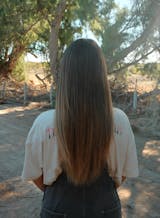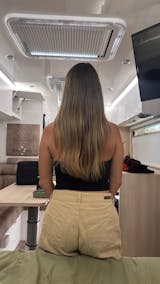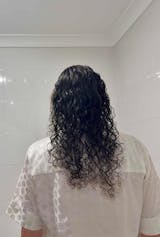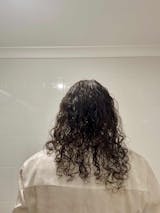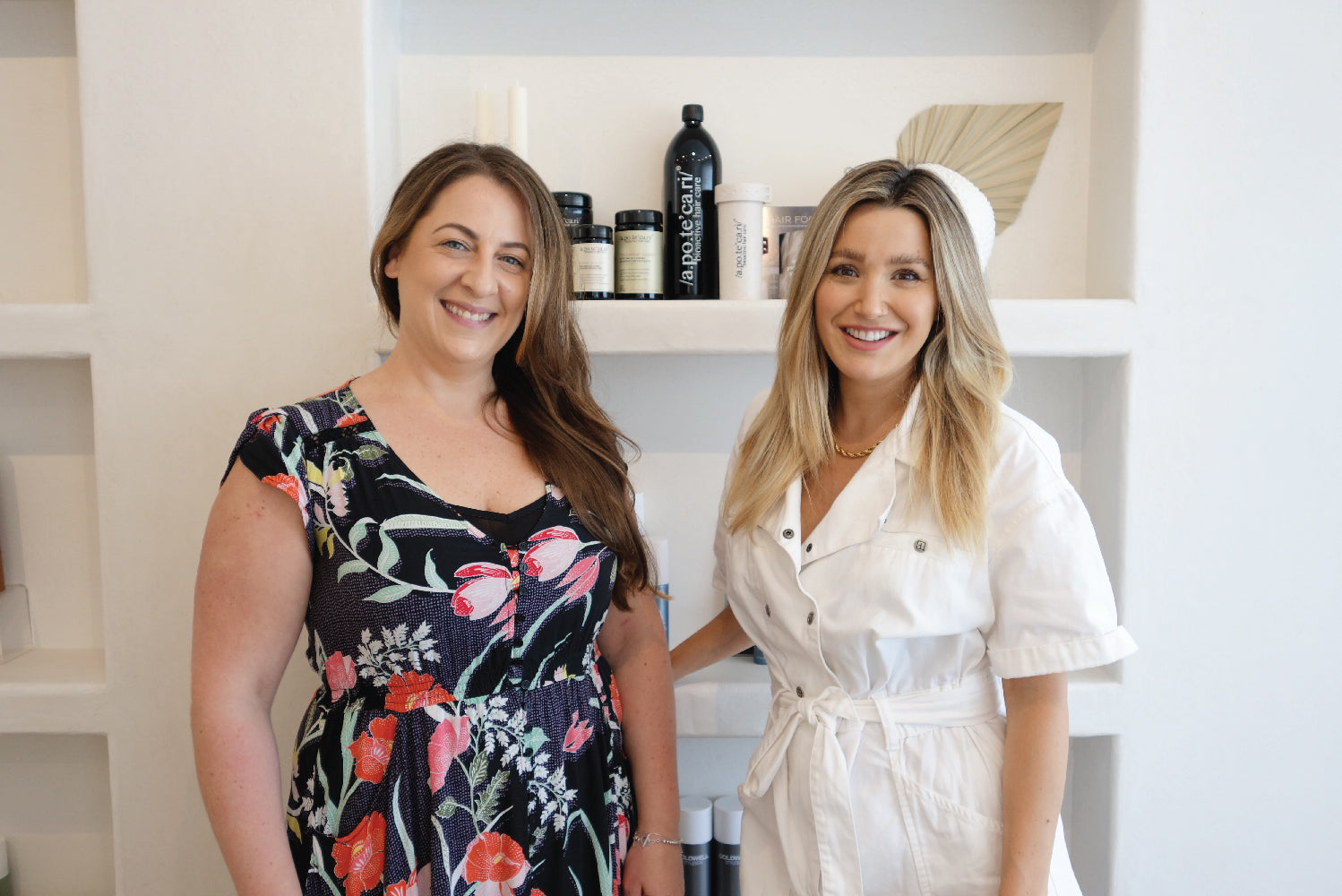
Pregnancy, Childbirth + Hair: Explained
Giving birth and being born brings us into the essence of creation, where the human spirit is courageous and bold and the body, a miracle of wisdom.
– H Hartigan
To be pregnant is to be vitally alive, thoroughly woman.
As one commences the journey to motherhood, from preconception, changes within the body are certain to occur in preparation for a special new arrival. The glow of dewy, translucent skin, and the thicker, luscious locks of a pregnant woman, for one, are outer changes in line with what’s taking place internally. The changes that a woman experiences during pregnancy and postpartum are largely related to hormonal fluctuations, which can have profound physiological and emotional effects.
“I’m never as happy as when I’m pregnant. I literally would have 10 babies if I could!”
— Tori Spelling
When pregnant, a woman experiences dramatic increases in the hormones oestrogen and progesterone.
Oestrogen is responsible for supporting the growth of the uterus, maintaining the uterine lining where baby grows, increasing blood circulation and slowing hair shedding.
Progesterone helps to maintain an optimal environment within the uterus for a growing foetus.
In line with these hormonal increases, physiologically and to varying degrees from woman to woman, one may experience nausea (hello, morning sickness!), larger breasts with milk duct development, that ‘pregnancy glow’, and thicker hair.
Pregnancy + Hair Growth
Many women will experience increased hair growth and thicker hair during pregnancy. As a result of the change in hormones during this time, it may even grow on the face, arms, back and legs. Most of this growth will revert to normal after the baby is born, and hormones begin to regulate to what they were pre-conception.
So what’s behind these changes?
Each strand is either in its growth phase known as ‘anagen’ or a resting phase, in which hair stops growing and starts detaching slowly, known as ‘telogen’. One’s growth phase typically lasts approximately 3 years and the resting phase, 3 months. With this is mind, we normally have 85-95% of our hair in growth phase at any point in time, the remainder in the resting phase.
During pregnancy, hormonal changes stimulate an increased percentage of hairs in the growth phase, which is why women experience thicker hair during pregnancy, as more hairs grow and less are resting/shedding.
Pregnancy + Hair Loss
While many women experience hair growth and thicker hair during pregnancy, hormone changes can affect individuals in different ways, leaving some women experiencing excessive hair shedding or deterioration in condition. This is especially common in women who have a family history of female alopecia. Hair loss during the first trimester of pregnancy can be attributed to a condition known as telogen effluvium, which can be caused by the shock and stress a woman’s body undergoes when first pregnant. This is less common, affecting a small number of women.
Postpartum Hair Changes + Hair Loss
After childbirth, many women will experience hair loss and condition decline, known as postpartum hair changes.
At this time, as a woman’s hormones shift again, regulating to where they were before conception. As the levels of specific hormones decline, so too does the flowing growth of hair one may have experienced whilst pregnant. With more hairs entering the telogen phase, strands rest for around 3 months before finally falling out to let new growth through. Like clockwork, new mothers often experience what is commonly known as postpartum hair loss approximately 3 months after giving birth.
The extent to which one experiences postpartum hair loss varies from woman to woman. The severity may be more apparent if the rate of growth significantly increased during pregnancy, or for those with long hair.
Usually, this form of hair loss is temporary and will return to a normal hair growth cycle after 6 months.
This said, there are actions one can take to reduce the symptoms of postpartum hair changes and support growth through this phase.
An expert opinion: Kirby Lago, Owner of Pelo Salon and mother of three
Salon owner, stylist and mother of three, Kirby Lago has not only experienced postpartum hair changes, but nurtures many women who come to her salon through the effects of postpartum hair loss.
Her advice:
- Stop pulling your hair back – Pulling your hair back in tight up-dos places stress on the hair at the roots. If your roots are already under stress due to a lack of nutrients or hormonal changes, an added physical stressor can increase hair shedding.
- Wash your hair less – Our hair produces sebum to nourish our scalp and strands. If you wash your hair too often, you are stripping your hair of these precious oils and creating a missed opportunity to provide it with nature’s conditioner.
- Use a boar bristle brush - Boar bristle brushes are gentle on your hair (perfect if you’ve experienced a decline in hair strength) and help to spread your hair’s natural oils down the shaft to areas that need it the most.
- Be kind to your hair – Even if you are a busy mum like Kirby, make sure you don’t neglect your scalp and strands. Kirby advises to find the products and a regimen that works for you and stick to it. This makes your hair care not only effective, but easier to fit into your daily routine.
Hear more of our conversation with Kirby here.
An expert opinion: Simone Abaron, nutritionist, trichologist, naturopath and founder of Apotecari.
With a profound background in nutrition and naturopathy, Simone is a firm promoter of food being thy medicine. Simone approach is holistic when it comes to supporting a woman through their postpartum hair journey:
- Take a pregnancy-safe collagen supplement and support it with vitamin C, to help its uptake and viability within the body. Apotecari’s Hair Atelier is the perfect mix of superfoods, plant-based proteins and vitamins that support collagen production and healthy hair growth, as well as being pregnancy and breastfeeding suitable.
- Support your body with a variety of essential nutrients by eating a well-balanced diet and supplementing where necessary. A new mum’s nutritional status during pregnancy can significantly impact the amount of hair that is lost after childbirth. Starting a hair supplement regimen during or even before pregnancy is an excellent way to feed your hair the nutrients it needs to stay healthy and minimise the potential for nutritional deficiencies which can amplify hair loss postpartum. If a supplement neglects a ‘suitable for pregnancy or breastfeeding’ claim, always consult with your healthcare professional before beginning a supplement regimen if pregnant or breastfeeding.
- Speak your stylist. You can’t hide a bad hair day from your stylist, they know if your hair is in poor condition or going through a period of change. Seek their advice on the best products, styling and colour tips and cuts to support your hair through your pregnancy and postpartum journey.


